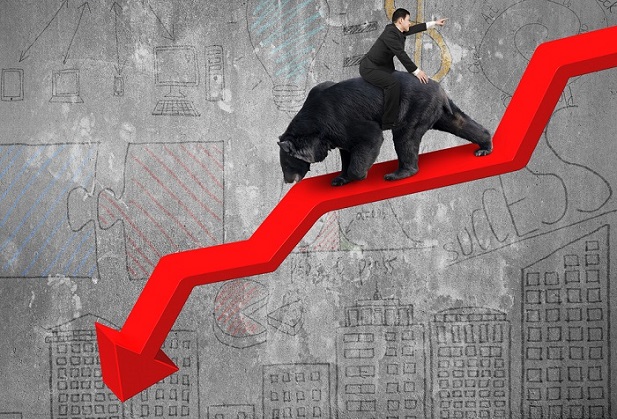 One thing workers should do is keep up their contributions to retirement and health savings accounts. According to the report, new contributions are particularly important during a downturn because equities tend to be “on sale,” meaning they're less expensive than they would be if the market were rising.(Photo: Shutterstock)
One thing workers should do is keep up their contributions to retirement and health savings accounts. According to the report, new contributions are particularly important during a downturn because equities tend to be “on sale,” meaning they're less expensive than they would be if the market were rising.(Photo: Shutterstock)
People close to retirement are watching the current market gyrations with anxiety, lest they end up with insufficient funds in their retirement accounts to follow through on a previously planned retirement schedule.
But according to a Marketwatch report, they should be viewing the downturn as an opportunity rather than a disaster.
Although they may be considering moving all their retirement savings out of stocks and into cash or bonds, that's not the way to go, although they should have a sizeable amount in cash that's enough to cover expenses for an extended period of time.
According to Steven Brett, president of Marcum Financial Services in Melville, N.Y., cited in the report, those within five years of retirement should consider having two to three years' worth of cash available as they enter retirement; that way they won't be concerned about how they'll pay for everyday living expenses.
Another proponent of cash, although not quite so much of it, is Thomas Rindahl, a financial adviser at TruWest Wealth Management Services in Phoenix, Arizona. Rindahl recommends in the report that would-be retirees have one to two years' worth, or even CDs—at a higher interest rate than either checking or savings accounts.
Says Rindahl in the report, “Have additional funds in cash so that the rest of the assets don't necessarily have to be liquidated at an inopportune time.”
Rebalancing portfolios is also a good idea, according to Brett, pointing out that during volatility they can be tilted toward more conservative and then readjusted for more growth to see them through retirement once the market settles down.
And don't think about plowing nearly everything into bonds, cautions Ed Gjertsen, vice president of Mack Investment Securities in Northfield, Illinois. He's quoted saying, “The adage that once you retire you should be 80% in bonds and 20% in stocks is all gone. The way a portfolio is allocated is more personal than it is broad.”
What people should do before retirement is plan for and calculate retirement expenses, such as basic costs of living (housing and food), medical bills, lifestyle choices (including vacation and gifts), taxes, charitable giving and the unexpected. That's according to James Schwarz, a financial advisor at CLEAR Retirement Advice in San Mateo, California.
Schwartz says in the report, “I look at the next five years and say, what are the actual withdrawals we are planning?” Then, he suggests, would-be retirees need to make sure they have enough cash and conservative investments to cover that.
To his way of thinking, there should be about five years' worth, although those with higher worries about risk might feel better with 8–10 years' worth instead.
One thing workers should do is keep up their contributions to retirement and health savings accounts. According to the report, new contributions are particularly important during a downturn because equities tend to be “on sale,” meaning they're less expensive than they would be if the market were rising.
READ MORE:
Risk exposure: Does your plan still offer company stock as an investment option?
© Touchpoint Markets, All Rights Reserved. Request academic re-use from www.copyright.com. All other uses, submit a request to [email protected]. For more inforrmation visit Asset & Logo Licensing.






